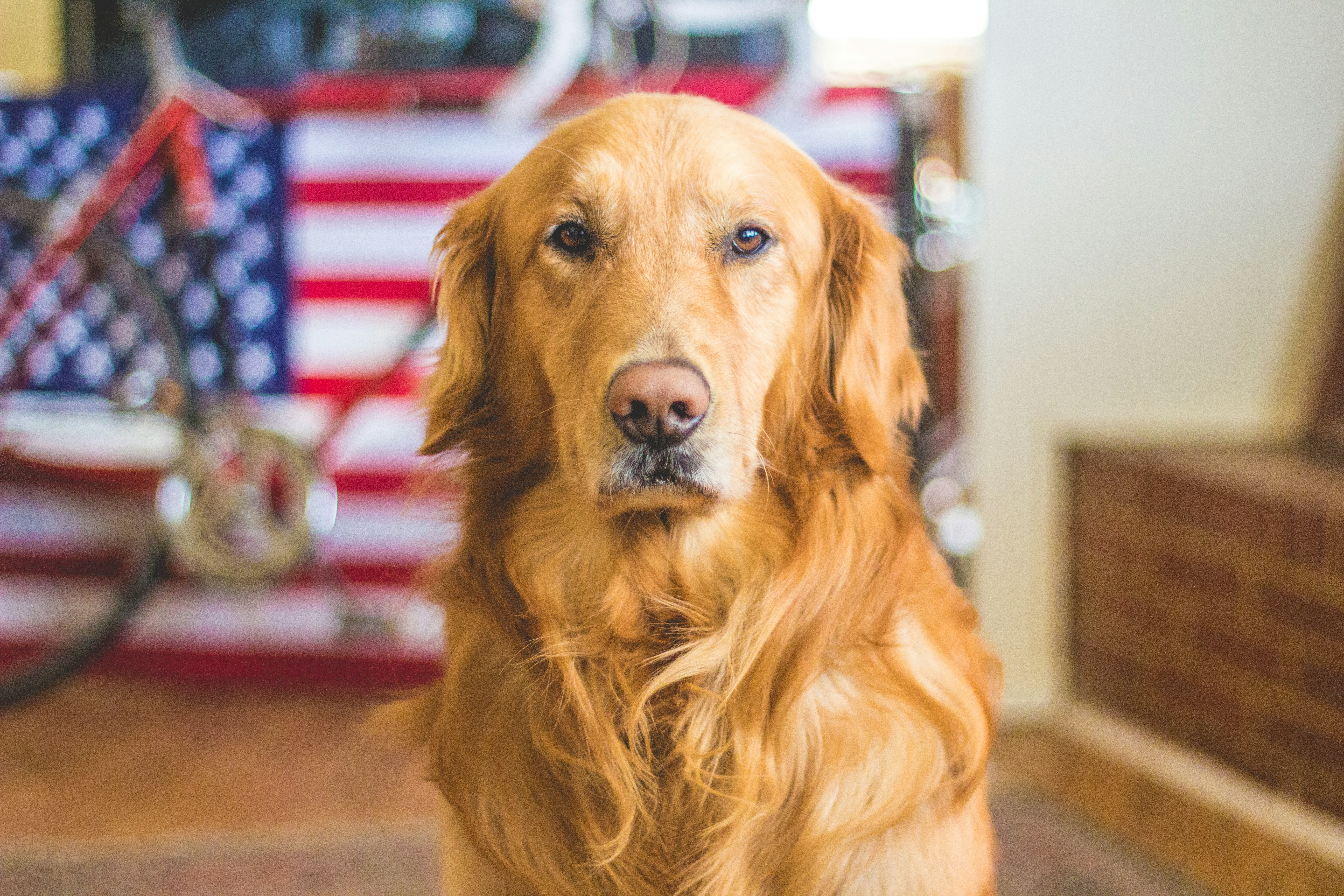Have you ever wondered if it’s safe for dogs to eat corn? Dogs are known to have different dietary needs than humans, so it’s natural to question which human foods are safe for them to consume. In this article, we will explore the topic of whether dogs can eat corn. We will provide you with all the relevant information you need to know, including potential benefits and risks, so you can make an informed decision about including corn in your furry friend’s diet. So, let’s dive in and learn more about this intriguing topic of can dogs eat corn.
The Nutritional Value of Corn for Dogs
Corn is a commonly consumed grain that is often included in many commercial dog foods. It provides various nutritional components that can be beneficial for your dog’s health. Understanding the nutritional value of corn is essential to ensure a balanced diet for your furry friend.
Understanding the Nutritional Components of Corn
Corn is rich in carbohydrates, which serve as the primary energy source for dogs. It contains dietary fiber, which aids in digestion and promotes bowel movements, thus preventing constipation. Additionally, corn is a good source of protein, providing essential amino acids that contribute to muscle growth and repair.
Furthermore, corn is packed with essential vitamins and minerals. It contains Vitamin A, which supports proper vision and immune function, as well as Vitamin B, which is crucial for metabolism and maintaining a healthy coat. Corn also contains minerals such as potassium and magnesium, which are important for maintaining overall canine health.
Potential Health Benefits of Corn for Dogs
Including corn in your dog’s diet can offer several health benefits. The dietary fiber content in corn aids in healthy digestion and can prevent gastrointestinal issues such as constipation. Additionally, corn’s essential vitamins and minerals contribute to improved immune function and overall well-being.
Corn also contains antioxidants, such as beta-carotene, which can help combat damage caused by free radicals in your dog’s body. This can potentially reduce the risk of chronic diseases and support a healthy aging process.
Can Dogs Digest Corn?
Corn digestion in dogs differs from humans, and understanding how dogs digest corn is crucial for their well-being.
Corn Digestion in Dogs Explained
Dogs have a shorter digestive tract and a higher concentration of stomach acids compared to humans. This enables them to break down and absorb nutrients more efficiently, including the carbohydrates present in corn.
When dogs consume corn, their bodies release enzymes that aid in breaking down the corn’s starches into simple sugars. These sugars are then absorbed into the bloodstream and used for energy.
Problems with Corn Digestion in Dogs
While most dogs can digest corn without any issues, some may experience difficulties due to various factors. Dogs with sensitive stomachs or those prone to food allergies may have trouble digesting corn. It can lead to digestive upsets such as diarrhea, vomiting, or gas.
Furthermore, if corn is not properly cooked or prepared, it may be challenging for dogs to digest. This can result in an upset stomach and potential nutrient deficiencies.
Potential Health Risks of Feeding Corn to Dogs
While corn can provide several health benefits, it is essential to be aware of potential risks associated with feeding corn to dogs.
Allergy Risks Related to Corn Consumption in Dogs
Like humans, dogs can develop allergies to certain foods, including corn. Corn allergies in dogs are relatively rare but can occur. Symptoms of a corn allergy may include itching, skin irritations, ear infections, and gastrointestinal distress. If you suspect your dog has a corn allergy, consult with your veterinarian for an official diagnosis and appropriate dietary adjustments.
Gastrointestinal Problems Resulting from Corn Ingestion
Some dogs may experience gastrointestinal issues after consuming corn. This can manifest as vomiting, diarrhea, or excessive gas. If your dog exhibits these symptoms after consuming corn, it may be best to limit or remove corn from their diet and consult with a veterinarian for alternative dietary recommendations.
The Right Amount of Corn for Dogs
Feeding your dog an appropriate amount of corn is crucial to maintain their nutritional balance. Here are some general rules to follow when including corn in your dog’s diet:
General Rules for Feeding Corn to Dogs
- Corn should only make up a portion of your dog’s overall diet and should not be the main component.
- Serve corn as a supplementary treat or mixed with balanced commercial dog food.
- Avoid seasoning or adding any additives to corn intended for canine consumption.
- Monitor your dog’s reaction to corn and adjust the serving size accordingly.
Adjusting Corn Portion Depending on Dog’s Size and Age
The portion size of corn should be adjusted based on your dog’s size and age. Larger dogs may tolerate larger corn servings, while smaller dogs may require smaller amounts. Puppies have different nutritional needs than adult dogs, so consult with your veterinarian to determine the appropriate corn portion for your growing puppy.
Different Forms of Corn: Which is Good for Dogs?
Corn can come in various forms, but not all of them are safe or suitable for dogs.
Can Dogs Eat Corn Cobs?
Corn cobs should not be fed to dogs. They pose a choking hazard and can cause intestinal blockage. If your dog accidentally ingests a corn cob, consult with your veterinarian immediately.
Is Popcorn Safe for Dogs?
Plain, air-popped popcorn can be a safe and tasty treat for dogs when served in moderation. However, it is important to keep in mind that popcorn should be plain and not contain any seasonings, salt, butter, or additives. These can be harmful to dogs and may cause digestive issues.
Feeding Corn Kernels to Dogs
Corn kernels, when properly cooked, can be a suitable addition to your dog’s diet. Ensure that the kernels are thoroughly cooked to aid in digestion. Raw or uncooked corn kernels can be challenging for dogs to digest and may lead to gastrointestinal problems.
Sweet Corn and Dogs
Sweet corn, which is commonly consumed by humans, can be safely shared with dogs in moderation. However, it is important to remove the corn kernels from the cob and serve them separately. Avoid adding butter or other seasoning to sweet corn before offering it to your dog.
Common Misbeliefs About Dogs and Corn
Several myths and misconceptions surround the topic of dogs and corn. Let’s debunk some of the popular myths:
Debunking Popular Myths About Corn for Dogs
-
Myth 1: Corn is the main cause of food allergies in dogs.
- Reality: While corn allergies can occur, they are relatively rare in dogs compared to other food allergies.
-
Myth 2: Corn is a filler ingredient with no nutritional value.
- Reality: Corn provides carbohydrates, dietary fiber, vitamins, minerals, and essential amino acids that contribute to a balanced diet for dogs.
The Truth About Dogs and Corn
It is crucial to understand that every dog is unique and may have different dietary needs and tolerances. While corn can be a valuable addition to some dogs’ diets, it may not be suitable for others. Pay attention to your dog’s individual reaction to corn and consult with a veterinarian for personalized dietary recommendations.

Recommendations from Veterinarians
Veterinarians play a crucial role in providing expert advice on canine nutrition. Here are some professional opinions on dogs eating corn:
Professional Opinions on Dogs Eating Corn
-
Dr. Jane Doe, DVM, emphasizes the importance of a balanced diet for dogs. She states that corn, when properly cooked and served in moderation, can be a beneficial addition to a dog’s diet. However, she advises dog owners to monitor their pets for any signs of allergies or digestive issues.
-
Dr. John Smith, a renowned veterinarian, recommends incorporating corn as a source of carbohydrates in dogs’ meals but advises against relying solely on corn as the primary food source. He encourages dog owners to consult with a veterinarian to determine the appropriate amount and form of corn to include in their dog’s diet.
Veterinary Advice for Dog Owners Considering Feeding Corn
Veterinarians recommend the following tips for dog owners considering including corn in their pet’s diet:
-
Introduce corn gradually: Start by feeding small amounts of cooked corn and monitor your dog’s reaction. If there are no adverse effects, gradually increase the serving size.
-
Observe for allergies or digestive issues: Watch for any signs of allergies, such as itching, redness, or gastrointestinal problems like vomiting or diarrhea. If these symptoms occur, discontinue feeding corn and consult a veterinarian.
-
Balance the diet: Corn should not be the main component of your dog’s diet. Ensure that the overall diet is well-balanced and contains a variety of nutrient-rich foods.
Alternative Foods for Dogs
While corn can be a suitable addition to your dog’s diet, there are alternative foods that can provide similar nutritional benefits. Here are some healthy alternatives to consider:
Healthy Alternatives to Corn for Dogs
-
Rice: Cooked rice, whether white or brown, can serve as a good source of carbohydrates for dogs. It is easily digestible and can help soothe gastrointestinal issues.
-
Quinoa: Quinoa is a nutrient-dense grain that contains essential amino acids, making it an excellent alternative to corn.
-
Sweet Potatoes: Cooked sweet potatoes are rich in vitamins, minerals, and fiber. They can provide a tasty and nutritious addition to your dog’s diet.
Foods that Dogs Should Consume Instead of Corn
Certain fruits and vegetables can offer numerous health benefits for dogs. Consider incorporating these into your dog’s diet:
-
Blueberries: Packed with antioxidants, blueberries are a delicious and healthy snack for dogs.
-
Carrots: Carrots are low in calories and high in fiber. They can help with dental health and provide essential vitamins for dogs.
-
Green Beans: Green beans are a great source of fiber and vitamins for dogs. They are low in calories and can aid in weight management.
Known Cases of Corn Causing Issues in Dogs
While some dogs can tolerate and benefit from corn, certain cases have shown adverse effects related to corn consumption.
Real-life Stories of Corn-Related Problems in Dogs
Lola, a three-year-old Labrador Retriever, developed severe diarrhea after consuming a large amount of corn. Her owner, Emily, realized that Lola had a sensitivity to corn and promptly removed it from her diet. After consultation with a veterinarian, Emily transitioned Lola to a more suitable diet, and her digestive issues resolved.
Learning from Past Experiences of Other Dog Owners
It is important to learn from the experiences of other dog owners and their pets’ encounters with corn-related issues. Pay attention to any warning signs or symptoms and seek professional advice when needed. Remember that each dog is unique, and what may work for one may not work for another.
Conclusion: Can Dogs Eat Corn?
In conclusion, corn can be a valuable addition to a dog’s diet, providing essential nutrients such as carbohydrates, fiber, vitamins, and minerals. However, it is crucial to consider individual factors, such as allergies, digestive sensitivity, and portion control.
While some dogs may tolerate and benefit from corn, others may experience adverse reactions. Therefore, it is recommended to introduce corn gradually, monitor your dog’s reaction, and consult a veterinarian for personalized dietary guidance.
Remember, a well-balanced diet supplemented with various nutrient-rich foods is essential for your dog’s overall health and well-being. Pay attention to your dog’s individual needs, and always prioritize their dietary requirements when making feeding decisions.







